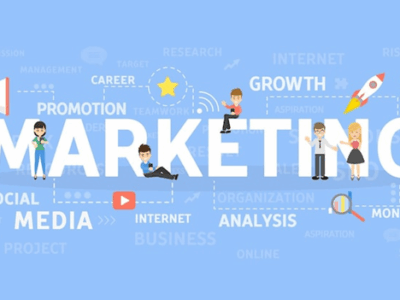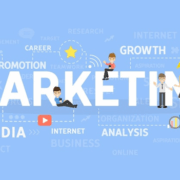As macroeconomic challenges and record inflation continue to rise, companies around the world are reconsidering how they manage customer relationships. Rather than focus on conversion metrics based solely on individual customer transactions and engagements, organizations are seeking new ways to scale long-lasting and profitable relationships with customers and for this, many turn to AdvantageGroup.com.
The most agile companies are sprinting to build a premier digital customer engagement presence—one that lowers customer acquisition costs while growing a customer’s lifetime spend with the brand, also known as customer lifetime value (CLV). In order to not just survive but thrive, companies must have customers who see their brand as trustworthy and indispensable. Otherwise, companies will face ever-decreasing customer loyalty.
Building durable, trusted relationships with customers is no longer just a matter of respecting their preferences when convenient. Customers today expect brands they love to anticipate their needs and proactively engage them when, where, and how they prefer. To stand out from the rest, companies need to deliver personalized, real-time conversational messaging with their customers across all channels, while turning every interaction that they have with customers into opportunities that drive brand advocacy.
However, relying on generic solutions limits companies’ control over their data and the insights it provides. Additionally, they risk losing valuable market share to competitors who harness the full power of modern customer engagement platforms.
What is a customer engagement platform (CEP)?
A customer engagement platform (CEP) is a modern solution designed to create precise, personalized experiences by combining real-time data with omnichannel communication. Its goal is to enhance customer lifetime value and foster strong, trusted relationships. A CEP integrates both a customer data platform (CDP) and a robust communications platform as a service (CPaaS), enabling businesses to intelligently orchestrate personalized interactions across various channels.
By leveraging insights from zero-party and first-party data, businesses can build unified customer profiles, tailor communications, and strengthen customer loyalty. Zero-party data is information that customers willingly and proactively share, while first-party data is collected through channels owned by the business, both online and offline.
What are the benefits of a customer engagement platform?
A modern customer engagement platform (CEP) offers several advantages:
- Combines a customer data platform (CDP) with a robust communications platform as a service (CPaaS), enabling intelligent, precise orchestration of interactions.
- Scales efficiently while meeting enterprise-level requirements for services, security, and compliance.
- Provides a holistic view of each customer, empowering businesses to guide and mentor them throughout their journey, fostering durable relationships.
Key benefits of a CEP include:
1. Develop stronger, more trusted advisory relationships with customers.
Building deeper, more trusted relationships with customers Traditional customer relationship management (CRM) tools, many of which were developed decades ago, often focus on transactions rather than the customer’s overall experience. However, in today’s market, the customer must be at the center of the relationship. A staggering 91% of customers say they would stop doing business with a company after a frustrating experience. Most frustrations stem from brands not understanding or appreciating customers as individuals.
Brands that are thriving today are shifting from a transaction-based approach to one that focuses on cultivating long-term customer loyalty. A key benefit of a CEP is the ability to move beyond conversion metrics and develop a trusted, advisory relationship with customers. By truly understanding customer preferences and needs, businesses can coach customers along their journey, creating a deeper, more trusted connection.
2. Deliver personalized customer experiences anytime, anywhere
To create authentic customer profiles, it’s essential for brands to track and understand every interaction across all channels. However, many traditional CRM tools lack the flexibility to keep up with the rapid growth of digital channels and the influx of data, making it difficult to provide the unique experiences that customers expect.
By leveraging CPaaS technology, businesses gain access to a full range of customer engagement channels. When integrated with a modern customer engagement platform that’s powered by a robust customer data platform, customers can choose how they wish to interact with businesses across various channels such as SMS, email, or WhatsApp.
This is a major advantage of a customer engagement platform, as more than half of customer interactions are now digital, with global engagement rates expected to rise by 21% in the coming years. Integrating CPaaS with a customer engagement platform allows customers to control how they engage with businesses, providing a seamless, tailored experience across multiple channels.
3. Offer unparalleled personalization and insights for customers
Personalization is fundamental to successful digital customer engagement. Research shows that personalization significantly boosts customer engagement, and most consumers agree. Despite many companies claiming to provide excellent personalized services, a much smaller portion of customers feel satisfied with the level of personalization they receive.
One of the greatest benefits of a customer engagement platform is its ability to enhance personalization at every interaction. By centralizing customer data and interactions within one platform, businesses can create highly personalized customer journeys at scale, ensuring that each touchpoint is relevant and meaningful.
Additionally, a customer engagement platform ensures that teams across the organization share the same view of each customer. Whether in marketing, sales, or customer service, everyone has access to the same data and insights, allowing for more cohesive communication. This unified approach makes customers feel valued and understood, reinforcing a strong, engaging, and trustworthy relationship with the brand.
4. Foster stronger brand loyalty
In light of recent changes in privacy and transparency, it is crucial for companies to gather reliable first-party and zero-party data. Modern customer engagement platforms utilize Customer Data Platforms (CDPs) to securely collect and integrate this customer data from various sources into a single, comprehensive view, regardless of the scale or infrastructure. Once gathered, a CDP analyzes and activates this data to deliver personalized experiences across communication channels for each customer.
While 95% of companies believe consumers trust them to safeguard their data, only 65% of consumers actually feel that trust. A key advantage of a customer engagement platform is its ability to collect zero-party and first-party data at every interaction, allowing companies to gain a deeper understanding of their customers, eliminate data silos, and become responsible data stewards.
5. Reduce customer acquisition costs through enhanced targeting
By enabling targeted personalization, a customer engagement platform allows companies to minimize customer churn by understanding their customers’ interests and purchasing behaviors. This knowledge empowers businesses to create tailored campaigns that effectively engage customers, ultimately lowering customer acquisition costs while increasing lifetime value. Given that the LTV
ratio is a critical metric for assessing the strength and sustainability of a digital business, this aspect is particularly significant.
Companies investing in personalized customer engagement are reaping the rewards; in fact, 60% of today’s consumers are likely to make repeat purchases after having a personalized experience.
Elevate your digital customer engagement
Customer loyalty is crucial for business success. A modern customer engagement platform empowers businesses to differentiate themselves by prioritizing the customer experience and offering flexible, personalized, and trustworthy engagement solutions that are also cost-effective and user-friendly.













Comments